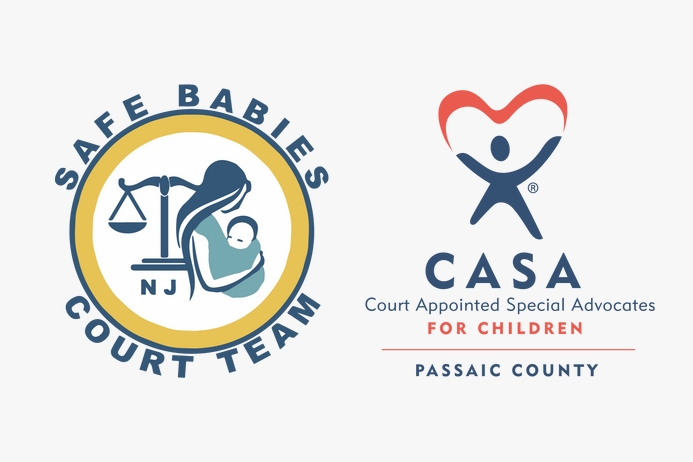Strategic Initiatives
Safe Babies Court Team
![]() New Jersey (Passaic, Essex, and Hudson Counties)
New Jersey (Passaic, Essex, and Hudson Counties)
Purpose
New Jersey successfully secured a $425,000 Safe Babies Court Team (SBCT) implementation grant from ZERO TO THREE through a partnership between:
- The Turrell Fund
- Passaic County Court Appointed Special Advocates (Passaic County CASA)
- Essex County CASA
- Hudson County CASA
- Advocates for Children of New Jersey (ACNJ)
- The Department of Children and Families (DCF)
- The Administrative Office of the Courts
- And numerous other partners
Through this investment, Passaic County CASA and its partners will create new infant-toddler court teams in Passaic, Essex and Hudson Counties.
These teams will serve children from birth to three years old in foster care or at risk of removal of their families.
The goal is to dramatically reduce the number of babies and toddlers removed from families and strengthening family relationships and positive life trajectories for children who enter foster care.
Approach
The Safe Babies Court Team (SBCT) approach, developed by ZERO TO THREE (ZTT), transforms the lives of child welfare-involved infants, toddlers, and families by changing the practices of judges, child welfare workers, service providers, and other community professionals.
Judge-led and staffed by a full-time community coordinator, SBCTs meet frequently to
- Provide enhanced judicial oversight and support to families
- Train staff on the science of early childhood development
- Connect families to much-needed services
- Engage parents as valued partners.
Farther upstream, SBCT works with court-involved families with infants and toddlers at risk of entering out of home care, connecting them with services and supports that can help prevent removal and meet the child’s needs while remaining in the home.
Impact
(based on ongoing research and evaluation)
- Improved safety: More than 99% of infants and toddlers served by SBCTs did not experience maltreatment within the 12-month period following the initial substantiated allegation.
- Faster time to permanency: Children exit foster care significantly faster than comparison groups.
- Preserved family relationships: Children are more likely to achieve permanency with a member of their biological family.
- Placement stability: At QIC-ITCT sites, 94.2% of children in care for less than 12 months had no more than two placements, compared to the national median of 86%.
- Racial equity: Children of all races and ethnicities were served equally well with regard to both placement stability, and length of stay in foster care.
- Cost savings: A cost analysis found that up to two-thirds of the program’s average cost per child could be directly generated from savings to jurisdictions due to shortened stays in foster care.



